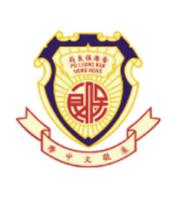| Language Policy |
The implementation of small class teaching allows students to learn both Chinese Language and English Language with reference to their abilities. In order to further enhance students' English abilities, Native English Teachers are scheduled to meet our junior form students weekly during a double period and other activities. |
| Learning and Teaching Strategies |
Our school-based curriculum relates closely to students’ daily life so that they have diversified learning experiences. Through the learning process, their generic skills, positive values and self-directed learning attitudes and knowledge of Key Learning Areas are cultivated. In line with the teaching objectives, our teachers not only apply ample teaching resources but also make use of the edge of information technology to create a favourable learning environment conducive to the enrichment of students’ experiences and the cultivation of their self-learning.<br>Our teachers often encourage our students to express their opinions, provide them with opportunities to demonstrate their learning outcomes, offer them timely praise and provide specific feedback on their strengths and areas for improvements, reinforce their learning performances and guide them to make improvement. Lesson observation and assignment inspection are measures adopted to gauge the quality and effectiveness of the devised curriculum, teaching plans and learning activities while the outcomes of our students’ performances help steer the direction of curriculum development.<br> |
| School-based curriculum |
1. Electives: 2X. Senior form students are allowed to have two elective subjects for the NSS Curriculum with reference to their own preferences and abilities.<br> 2. Curriculum highlights: To keep pace with the social development and cater for students’ learning needs, we keep adjusting the structure of the curriculum. |
| Approach to Catering for Learner Diversity |
To fully support the learning of our students, we actively promote Recitation(English and Chinese) and STEM project for lower form students and the Outstanding-homework-rewarding Scheme for the whole school. To help the newly-arrived students cope with their problems of adaptation and learning difficulties, our school develops strategies to strengthen the support for them and organizes diversified programmes to cater for their specific needs. |
| Approach to Integrated Education |
Our school implements the Whole School Approach (WSA) to Integrated Education to cater for learning diversity and enhance the effectiveness of education as a whole. The policies and strategies are as follows:<br>1) Set up a Student Support Team to plan and co-ordinate the implementation of the WSA. Make good use of various grants, e.g. Capacity Enhancement Grant, Learning Support Grant and Top-up Fund, etc.;<br>2) Deploy additional teachers, a student counsellor and a speech therapist to enhance classroom teaching and provide assessment, training and intervention;<br>3) Bring the teacher-student ratio down to 1:20 to give more attention and guidance to individual student;<br>4) Adopt “Differentiated Teaching Approach” to cater for the learning needs of students to provide flexibility to meet the students’ special needs;<br>5) Organize activities and workshops and peer support programmes such as “Caring Ambassadors” and “Chinese and English Language Reading Buddies”;<br>6) Invite parents to Individual Education Plan (IEP) meetings and strengthen the regular communications with parents. |
| Education Support for Non-Chinese Speaking (NCS) Students |
|
| Home-School Co-operation |
Our Parent-Teacher Association aims at cultivating and fostering closer and harmonious parent-teacher-student relationships and enhancing students’ sense of belonging to the school with activities such as regular meetings, the Annual General Meeting, Parents' Day, Parents’ Night, parents’ talks, parent-child voluntary work and workshops, parents' interest classes, picnics, visits, barbecues, feasts, sale of second-hand textbooks and school uniforms recycling scheme. |
| School Ethos |
We place great emphasis on our students’ discipline and moral development. Therefore, our school implements "Two-to-Three-Class-Teacher Policy" and whole school approach to provide guidance and monitor discipline.<br>Our Parent-Teacher Association organises various meetings and workshops to strengthen the liaison between parents and teachers. |
| School Development Plan |
In the coming year, we will focus more on students’ self-learning. We will allocate more resources on students with special needs. In order to arouse students’ interest in learning, more advanced stages will be constructed in the curriculum.<br>More resources will be distributed to the Comprehensive Life Planning Programme. |
| Teacher Professional Training and Development |
Apart from three Staff Development Days, we encourage our teachers to participate in different training programmes in the areas of school administration, counseling and guidance, subject-based development and teaching strategies and pedagogy. |
| Life-wide Learning |
In order to provide a quality campus life for students, we organize a series of activities for students' personal growth and development. We provide over 30 interest groups for students. Every S1 student must join Civil Aid Service and at least one group to receive intensive training on a particular skill. For team and personal development, there are many different kinds of inter-class competitions and inter-house competitions such as the Inter-class Bulletin Board Design Competition and Inter-house Cheering Team Competition. Also, there are leadership training camps, workshops for learning social etiquette and acquiring event planning skills, first aid classes, adventure activities and so on. |
